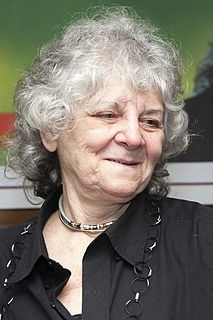A Quote by Guglielmo Marconi
Long experience has taught me not always to believe in the limitations indicated by purely theoretical considerations. These, as we well know, are based on insufficient knowledge of all the relevant factors.
Quote Topics
Related Quotes
The theoretical idea ... does not arise apart from and independent of experience; nor can it be derived from experience by a purely logical procedure. It is produced by a creative act. Once a theoretical idea has been acquired, one does well to hold fast to it until it leads to an untenable conclusion.
Optimism is an alienated form of faith, pessimism an alienated form of despair. If one truly responds to man and his future, ie , concernedly and "responsibly." one can respond only by faith or by despair. Rational faith as well as rational despair are based on the most thorough, critical knowledge of all the factors that are relevant for the survival of man.
The essence of knowledge is generalization. That fire can be produced by rubbing wood in a certain way is a knowledge derived by generalization from individual experiences; the statement means that rubbing wood in this way will always produce fire. The art of discovery is therefore the art of correct generalization. ... The separation of relevant from irrelevant factors is the beginning of knowledge.
The only purpose of education is to teach a student how to live his life-by developing his mind and equipping him to deal with reality. The training he needs is theoretical, i.e., conceptual. He has to be taught to think, to understand, to integrate, to prove. He has to be taught the essentials of the knowledge discovered in the past-and he has to be equipped to acquire further knowledge by his own effort.
Even if we ignore the 'non-theoretical' knowledge which we acquire through experience (such as the knowledge of what something tastes like) and concentrate on theoretical knowledge, there is no good reason to think that physics can literally give the theory of everything. Here I want to be really pedantic. Although everything may be subject to physical law, not everything can be explained or described in physical terms. Physics has literally nothing to say about society, morality and the mind, for example - but of course these are parts of 'everything'.
Despite popular theories, I believe people fall in love based not on good looks or fate but on knowledge. Either they are amazed by something a beloved knows that they themselves do not know; or they discover a common rare knowledge; or they can supply knowledge to someone who's lacking. Hasn't everyone found a strange ignorance in someone beguiling? . . .Nowadays, trendy librarians, wanting to be important, say, Knowledge is power. I know better. Knowledge is love.
During those long years in Oakland public schools, I did not have one teacher who taught me anything relevant to my own life or experience. Not one instructor ever awoke in me a desire to learn more or to question or to explore the worlds of literature, science, and history. All they did was try to rob me of the sense of my own uniqueness and worth, and in the process nearly killed my urge to inquire.
My mother taught me to focus on being myself and not to worry what other people think about you. I know that as long as I'm a good person I'll stay on the right path. From my dad I learned that when someone tells you “No” it's only the beginning of a conversation. They both have always let me know that I can do anything I want to do as long as I don't give up. They are the most important role models in my life because they are exactly who I want to be when I grow up. They are supportive and understanding and I try every day to remember what they've taught me.




































